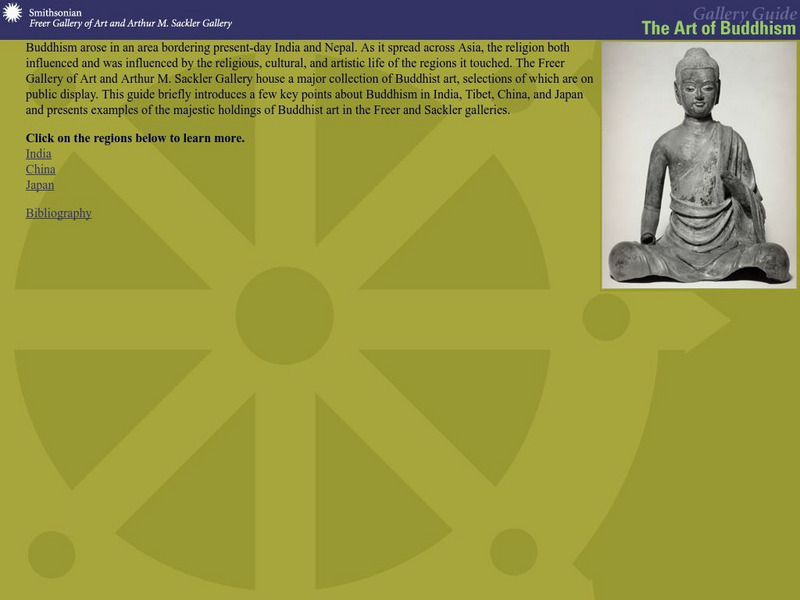Hi, what do you want to do?
Khan Academy
Khan Academy: Archery Practice
Under a cherry tree in full bloom, a mounted archer takes aim at a round paper target held by a running servant. One of several forms of archery practice formalized as early as the Kamakura period (1185-1333), this activity trained...
Khan Academy
Khan Academy: Dog Chasing
Dog chasing was one of three archery drills popular during the Edo period (1615-1868). Originally an exercise to improve martial skills, it became a formal sport with defined rules as early as the 14th century.
Khan Academy
Khan Academy: Haniwa in the Form of a Warrior
This object is a haniwa (lit. "clay ring"), a type of funerary article made during the Kofun era (300-552). Many kinds of haniwa have been found, including both simple clay cylinders and more elaborate forms, such as human figures,...
Khan Academy
Khan Academy: A Guardian King
This fierce-looking king is a symbolic protector of the Buddha's sacred law and also a fighter of evil spirits. His right foot is raised to stamp upon the head of a demon (now missing). His armor consists of tunic, trousers, chest and...
Khan Academy
Khan Academy: Incense Container With Design of Plovers
This container is used to hold small chips of incense used in tea gatherings. It is made out of an actual shell, which forms the lid. The base is lacquered wood. The lid is decorated with flying plovers (a small shore bird that runs in...
Khan Academy
Khan Academy: Tea Bowl With Dragon Roundels
This bowl was used for the tea ceremony. Learn when and how the Japanese people began to drink tea, what the dragon symbolizes, and who the artist is.
Khan Academy
Khan Academy: The Steamship Powhatan
This segment of the Black Ship Scroll depicts two of the nine American ships that arrived in Japan under Commodore Matthew Perry in 1854: U.S.S. Powhatan on the right and the U.S.S. Supply on the left. The Powhatan was a side-paddle...
Khan Academy
Khan Academy: Scenes From the Tale of Genji
This pair of screens illustrates scenes from four chapters of Japan's classic literary work, "The Tale of Genji," written by a female courtier by the name of Murasaki Shikibu in around the tenth-eleventh centuries. It is a romantic novel...
Khan Academy
Khan Academy: Arrival of a Portuguese Ship
In 1543, three Portuguese travelers aboard a Chinese ship drifted ashore on Tanegashima, a small island near Kyushu. They were the first Europeans to visit Japan. In 1548, Francis Xavier, a Jesuit, arrived from Goa to introduce...
Khan Academy
Khan Academy: Arts and Humanities: Art of Asia
A landing page for a course on the art history of Asia.
Khan Academy
Khan Academy: Scenes From the Tale of Genji
This pair of screens illustrates scenes from four chapters of Japan's classic literary work, "The Tale of Genji", written by Murasaki Shikibu in around the tenth-eleventh centuries. View pictures of these scenes and read a description of...
Khan Academy
Khan Academy: An American Ship
The subject of the painting "An American Ship" by Shinsei is probably the U.S.S. Powhatan, Commodore Matthew Perry's flagship on his second expedition to Japan in 1854. View pictures of the painting and read about Perry's expedition in...
Khan Academy
Khan Academy: An Introduction to Kabuki Theater
Kabuki was one of the three most popular dramatic forms of Japan during the Edo period and continues to flourish today. Read about these lively plays in this essay.
Khan Academy
Khan Academy: Archery Practice
This painting depicts one of several forms of archery practice formalized as early as the Kamakura period (1185-1333), this activity trained warriors to shoot accurately at moving targets while riding at a full gallop. View this picture...
Khan Academy
Khan Academy: Arrival of a Portuguese Ship
"Arrival of a Portuguese Ship" portrays the arrival of a Portuguese ship at the port of Nagasaki. View this picture and a read short explanation of the trade relationship between Portugal and Japan.
Khan Academy
Khan Academy: Dog Chasing
The painting "Dog Chasing" depicts the activity of dog chasing which was one of three archery drills popular during the Edo period. View the picture and read a description in this essay.
Khan Academy
Khan Academy: Fire Procession Costume
Firemen were important people in Edo society. View pictures of their "costumes" and read why they were held in such high regard in this essay.
Khan Academy
Khan Academy: Matchlock Gun and Pistol
Owning a pistol was a symbol of a samurai's power, rank, and wealth in Edo, Japan. They were often decorated with the samurai's family crest. View pictures and read descriptions of these weapons.
Khan Academy
Khan Academy: Military Camp Jacket
The military camp jacket in Japan not only offered protection from the elements but were also personalized fashion statements. Each jacket showed the wearer's status, clan affiliations, and wealth. View pictures of these jackets and read...
Khan Academy
Khan Academy: Military Leader's Fan
Objects used by military leaders in Edo, Japan were often an insignia of the owner's rank. This military fan had multiple uses and was decorated to show the military power of the owner. View a picture of this fan and read a description...
Khan Academy
Khan Academy: Tea Bowl With Dragon Roundels
This tea bowl made by Nonomura Ninsei was used for a tea ceremony in Japan. View pictures of the bowl and read a short description.
California State University
Origami
Students of all ages love learning origami. This lesson gives good outlines on how to set up a classroom for this challenging, yet fun art form. There is a great suggestion to incorporate the picture book "Sadako and the Thousand Paper...
Other
Care of Japanese Screens: Basic Care
This site contains information on the basic care for Japanese Screens. It also includes a link to Japanese Screen Emergency Care.
Smithsonian Institution
Freer | Sackler Galleries: Gallery Guide: The Art of Buddhism
An examination of the aesthetic tradition of Buddhist art in India, China, and Japan, with examples pulled from the Smithsonian galleries devoted to the art of Asia.




























